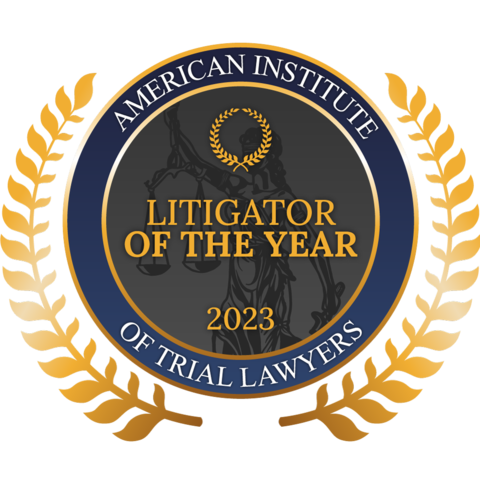Being charged with unlawfully entering another person’s property is a very serious allegation, and these charges can range from a violation all the way to a class B violent felony. Depending on the allegations, the penalties can vary greatly, and it is therefore important that you speak with an experienced criminal defense attorney as soon as possible to minimize the potential consequences.
Experienced defense attorney Mike Schillinger defends clients throughout New York and Long Island against all types of burglary charges, as well as other criminal charges. As an Islip trespass and burglary lawyer, Mike has a wealth of legal experience and a strong commitment to fighting hard on behalf of his clients.
Common Burglary And Trespass Charges
Trespass and burglary charges range in severity from simple violations all the way to serious violent felonies, each carrying specific penalties, including:
- A criminal record that will follow you for life and may negatively impact your job possibilities
- The likelihood of increased sentences if you’re convicted of a felony in the future
- A driver’s license suspension
- Being expelled from college or losing your financial aid
- If you’re a legal permanent resident or undocumented, you can face serious immigration consequences
- Costly fines and court fees
- Sentences that include lengthy incarceration or probation periods
Understanding what you’ve been charged with is important in determining the potential consequences. Some common charges include the following:
Trespass (Violation) PL § 140.05
A person can be convicted of a trespass violation by simply entering or remaining unlawfully upon the premises of another. This violation does not only apply to houses. In fact, much more frequently, people are charged with this violation when they enter stores, casinos or other establishments they have been previously banned from entering. A conviction of this violation can subject a person to up to 15 days in jail.
Trespass (Misdemeanor) PL § 140.10 & PL § 140.15
There are two trespass misdemeanors a person can potentially be charged with, one is a class B misdemeanor, subjecting someone to a potential of 90 days in jail and fines, and the other is a class A misdemeanor, subjecting someone to up to a year in jail and more significant fines. Generally speaking, the distinction between the two misdemeanors is that the class A misdemeanor involves a person entering or remaining unlawfully in a dwelling, whereas the class B misdemeanor can involve simply entering a fenced-in location.
Trespass (Felony) PL § 140.17
To be charged with trespass as a felony, an individual is alleged to have entered a building unlawfully, while they or another participant in the crime possesses an explosive or deadly weapon, or while they possess a firearm, rifle or shotgun and possess readily accessible live ammunition, or when they know that another participant in the crime possesses such a weapon. As a class D felony, this trespass crime carries significantly more severe penalties than the misdemeanor trespass crimes, including significantly longer periods of incarceration and greater fines.
Burglary PL §§ 140.20, 140.25, 140.30
In New York, burglary is broken into three different classes: burglary in the third degree, a class D nonviolent felony; burglary in the second degree, a class C violent felony; and burglary in the first degree, a class B violent felony, which is the most serious of the various burglary-related crimes. To commit burglary in the third degree, a person need only enter a building with the intent to commit a crime. This can include any type of building, whether it is commercial or residential, when the individual alleged to have committed the crime did not have the permission of the owner to be inside of that building.
Burglary in the second degree is similar but has some significant differences. You may be charged with burglary in the second degree if it is a dwelling or if, while entering the building with the intent to commit a crime therein, or while fleeing, you or another participant in the crime:
- Is armed with explosives or a deadly weapon
- Causes physical injury to anyone who is not a participant in the crime
- Uses or threatens to use a dangerous instrument
- Displays what appears to be a gun
Burglary in the first degree is the most serious burglary charge. To be charged with burglary in the first degree, the building in question must be a dwelling and the person accused must also be accused of one of the factors listed above.
Each of these crimes carries very severe consequences, including probation, fines, jail time and adding to your permanent criminal record. The most important thing for you to do if you or a loved one has been arrested for any crime is to speak to an experienced attorney as soon as possible. There may be a number of options available to you, but consulting an experienced attorney is the first step to preparing your defense.
Even before being arrested, know that you have the right to an attorney. If you believe that you or a loved one may be a suspect in a crime, be sure to contact an experienced attorney as soon as possible. Having a skilled attorney representing you before lineup procedures are conducted and before statements are given to the police can mean a world of difference in the defense of your case.
Contact a Trespass and Burglary Attorney in Islip Today
Mike Schillinger can help you fight the charges you’re facing and hopefully avoid jail time and other penalties. Call today to schedule your free initial consultation with an Islip trespass and burglary lawyer.
 N/a
N/a
 N/a
N/a









